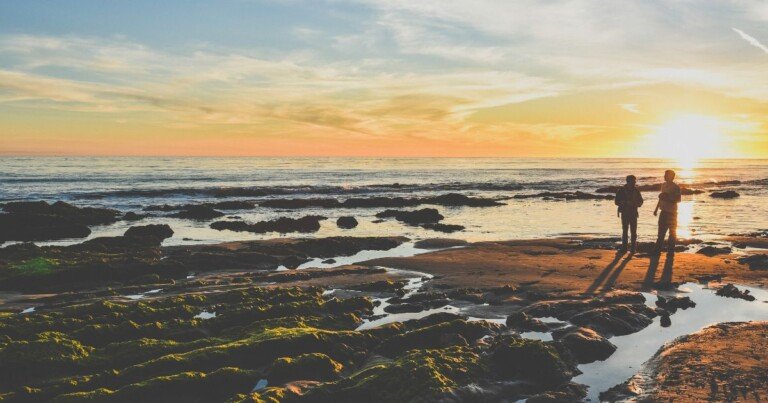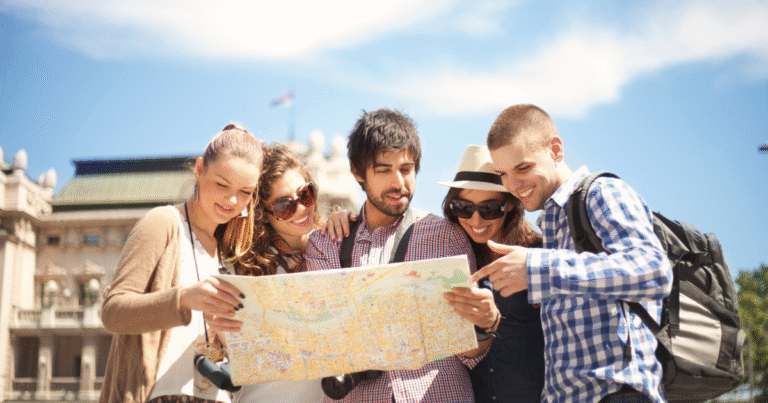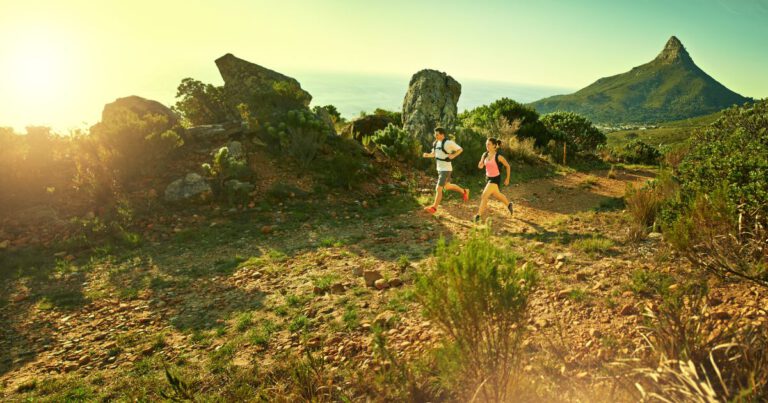🌍 Tourisme durable : Et si voyager était un acte de conscience ?
What if we traveled not to escape, but to connect?
In the noise of the modern world, where airplanes carve white scars across the sky and destinations line up like trophies on a virtual wall, one question rises — gentle, insistent, almost essential: why do we travel? Is it to collect places or to open up to others? To escape our daily lives or to better understand our place in the living world?
There was a time when travel felt like a pilgrimage — a suspended moment in time, when people set out without GPS, guided by intuition, the North Star, or a simple thirst for the horizon. Today, in an era saturated with images and speed, travel has become a banal — and sometimes brutal — act. But another path is emerging: slower, humbler, more aware — the path of They are also seeds of sustainable tourism: for those who have tasted the world with gratitude will not destroy it.a journey of consciousness.
What if, instead of consuming the world, we chose to honor it?
Isn’t this question, deep down, one that belongs to all of us?
? Because every journey begins with a moment of awareness.
?️ An Overheated World: The Invisible Impacts of Tourism
Each year, over a billion people hit the road, cross borders, and travel across oceans in search of new horizons. Global tourism, a powerful economic engine, now accounts for nearly 10% of the world’s GDP. But at what cost? Behind the postcards, the smiles, and the hashtags, a darker reality emerges — that of an overheated planet, exhausted by our thirst for elsewhere.
Low-cost flights have made flying commonplace, giant cruise ships are suffocating coastlines, and the world’s most visited cities — Venice, Barcelona, Machu Picchu — are buckling under the weight of ever-growing crowds. Biodiversity is suffering, local resources are dwindling, and cultures are slowly fading in the distorting mirror of profitable exoticism. Mass tourism, if not reimagined, becomes a crisis accelerator.
But understanding these impacts isn’t about guilt — it’s about opening our eyes.
Behind every journey lies a choice.
And that choice can transform not only how we explore the world, but the world itself.
? What if travel were once again a slow, attentive, responsible act?
🧝♀️ Voyager autrement : un éveil à la responsabilité
Travel is not neutral. With every step we take in a foreign land, we leave a footprint - carbon, but also cultural, human, symbolic. Yet far from being a fault, this footprint can become a promise: to walk with respect, to enter into a relationship rather than a conquest. For travel, in its noblest form, is a way of life. is an act of responsibility..
It all begins with attention: to what we eat, to the people we meet, to how we move through the world.
It means choosing to stay in places rooted in their land, respectful of the environment and the local communities, rather than in standardized, disconnected structures.
It means choosing low-impact ways of traveling, and supporting local cultures rather than consuming them.
But at a deeper level, it also means questioning our privileges as travellers:
Who can leave? Who stays? And who bears the consequences of our passage?
Responsible travel is not an elitist stance, but a way of opening our eyes, listening, and slowing down.
It’s not about giving up on travel — it’s about entering into it with awareness, as one would step into a sacred place.
? For it's in this fresh perspective that the real journey is born, one that transforms as much as it transports.
🌸 La beauté du monde : une invitation à protéger
Sometimes, all it takes is a sunrise over the mountains, the resonant silence of an ancient forest, or the gaze of a child along a dusty path to feel the heartbeat of the world. This beauty — fragile and vast — is not a postcard. It’s a call. A call to to protect,to love without owning, to walk without destroying.
Glaciers retreat, reefs whiten, birds desert their familiar skies. But instead of closing his eyes, the conscious traveler chooses to open them wider. He becomes a witness, a passer-by, a watchman. He knows that every landscape is a delicate balance, every culture a living memory, every ecosystem a whisper of ancient wisdom.
It's possible to amaze without altering. It requires us to abandon our consumer reflexes, to accept silence rather than noise, the unknown rather than comfort. It's not a loss: it's a return to the essential.
? Because what we really admire, we can't help but want to protect.
🦒 Et toi, quel voyage veux-tu offrir au monde ?
Close your eyes for a moment. Imagine that your next trip leaves a trace - not on nature, but in someone's heart, in the memory of a place, in the breath of a preserved tradition. What would you choose then? How would you get around? What would you really be looking for?
Sustainable tourism isn't just about itineraries and labels. It begins with an intention, an inner vision. What if it were possible to travel without disturbing, to learn without colonizing, to exist without erasing? This dream, this project, can only be a collective one. It belongs to all of us - travelers, hosts, communities, thinkers, children.
As a humanity on the move, we face a choice: to prolong the logic of extractive tourism — or to create new ways of connecting — slower, more respectful, and more meaningful.
? What if, for once, travel wasn't about going far — but about going right?
?♀️ Traveling differently: simple actions, deep impact
Changing the way we travel doesn’t mean turning everything upside down — just gently realigning our inner compass.
It starts with the first choices: choosing the train over the plane for mid-range distances, discovering the treasures of our own country before crossing the globe, daring to travel off-season to respect local rhythms.
It also means embracing joyful simplicity: traveling light, refusing single-use plastic, carrying a reusable bottle, supporting ecotourism initiatives, staying in sustainable accommodations, and meeting locals with humility. Every small gesture helps weave a different story of travel.
Even in the words we use, a shift is happening: we no longer “do” a country — we discover it.
It’s not something you check off a list — it’s something you feel.
Travel becomes a journey, a meeting, a responsibility.
👉 Car voyager autrement, c’est surtout to be someone else while traveling: more attentive, more connected, more alive. : more attentive, more connected, more alive.
🌱 Pour un avenir à hauteur d’âme
Perhaps a time will come when we remember this era as a turning point — when travel stopped being a right
A time when traveling meant listening, understanding, supporting.
Where the world was no longer a backdrop for our desires, but a living being to cherish.
This future is no utopia — it’s already taking root in the footsteps of those who choose to slow down, to engage in dialogue, to give rather than take. In shared paths, meals cooked together, and wordless glances exchanged. It lives in the rediscovered simplicity of being a guest, and in the quiet power of human-centered travel.
We need a kind of tourism that heals instead of harms, that connects instead of divides.
And that won’t come from laws or brands — but from us.
From you. From me. From the choices we make.
? So if this text moved you, share it, question it, enrich it.
Because this journey — the one of awareness — always begins together.
Dr Abdelaziz Aabadi




